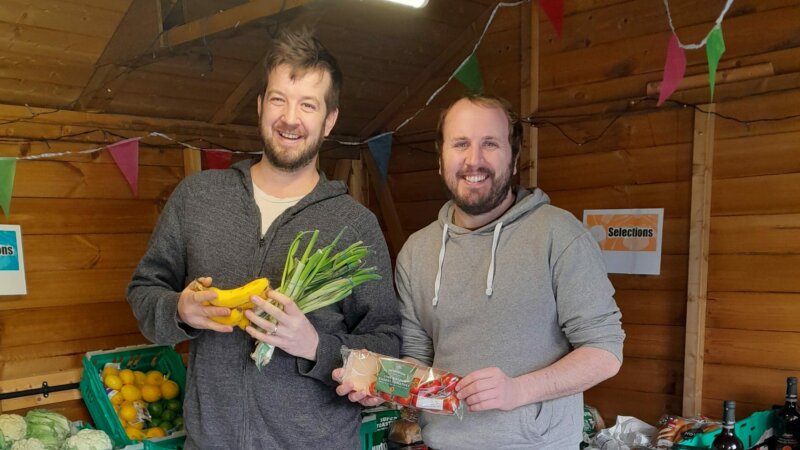Sound : A Call For Musical Collective Imaginaries
Two hooded figures march up two treadmills, occasionally screaming through warped effects as they continue on a journey of perpetual, monotonous movement.
The backdrop is a video compilation of serene after-hours shopping mall escalators blended with CCTV footage confusing shopping chaos (Black Friday) and mall-based scenes of horror, such as the al-Shabaab attack in Nairobi in 2013, presenting the excesses of consumerism as indistinguishable from outright barbarism.
So made up Gazelle Twin’s latest incarnation at last month’s FutureEverything Festival in Manchester. In a following Q&A, the artist was pressed on whether the piece possessed a political message. She refused to disclose any, instead comparing herself to many of JG Ballard’s protagonists, who act as passive agents, observing the horrors of a dystopian world whilst never creating an allegiance that could compromise their testimony.
I couldn’t help feeling that the artistic potency of the piece was diminished by this answer. Without ideological substance, the images of terrorists in shopping centres and deal-day riots only contribute to the horrific media bombardment we are subject to on a daily basis. By merely partaking in this culture, the passive artist fails to arouse emotions or thoughts in an audience distinguishable from the ones they are presumably contesting.
Music has been crippled by such a malaise for a while. Utopian thinking, a tool for progressive politics, has more or less vanished from music, especially in electronic dance music. Utopia was central to its purpose, from the beginnings of using revolutionary technology to dream of new futures (Yellow Magic Orchestra, Cybotron) to an evolved global movement which proposed using dance as a means to transgress societal norms.
20 years on and electronic music has mostly been stuck in a rut without a futurist purpose. The rehashing and remodeling of old sounds – typified by the resurgence in and fetishisation of tape saturation, Roland drum machines and vinyl – points to a genre enamored with its past. Through immersing ourselves in the retrofuturist aesthetics of early techno utopia, we avoid the responsibility of imagining our own futures coherent with our current situation. Even dubstep, a fresh shockwave of originality in the noughties, brought with it a pessimistic, distinctly dystopian aesthetic, evoking the broken and frustrated streets of decaying urban Britain.
The demise of a liberal identity in public life during the last 20 years perhaps explains this recourse to pessimism and fear of the new. Music, as a typically liberal and collectivist pursuit, has succumbed to the same individualised neoliberal morality that we see pervading all aspects of everyday life. The enforcement of the Criminal Justice and Public Order Act in 1994 was a stark example of the political realm resisting radical music through its criminalisation of the rave movement. The fear that any subsequent collective musical efforts will be thwarted by the political establishment has perhaps pervaded the collective unconscious of generations since.
But it is now more than ever that utopian visions of the future need to be dreamt up through art. The 2008 financial crisis, a failing of the dominant neoliberal power, should have been met with distinct opposition. Instead a number of localised, fringe protests couldn't ignite mass change because of a failure to present a coherent economic and political framework that could substantially replace the one in crisis. A cultural shift needs to take place in which a general understanding is opened up to new ways of living, so transition to such progressive lifestyles can be entertained.
As agents whose most valuable asset is imagination, who better than artists to partake in this conceptualising of new futures? Musicians like Holly Herndon excitingly embody this mentality. Herndon appropriates the tools of modern life – the internet and the laptop – as empowering devices that can encourage creative collaboration.
Let's not revel in the aesthetics of dystopia, but instead form collective imaginaries of worlds which we want to inhabit in the future. Only then can we facilitate a transition into a world more in line with the values we espouse. )





